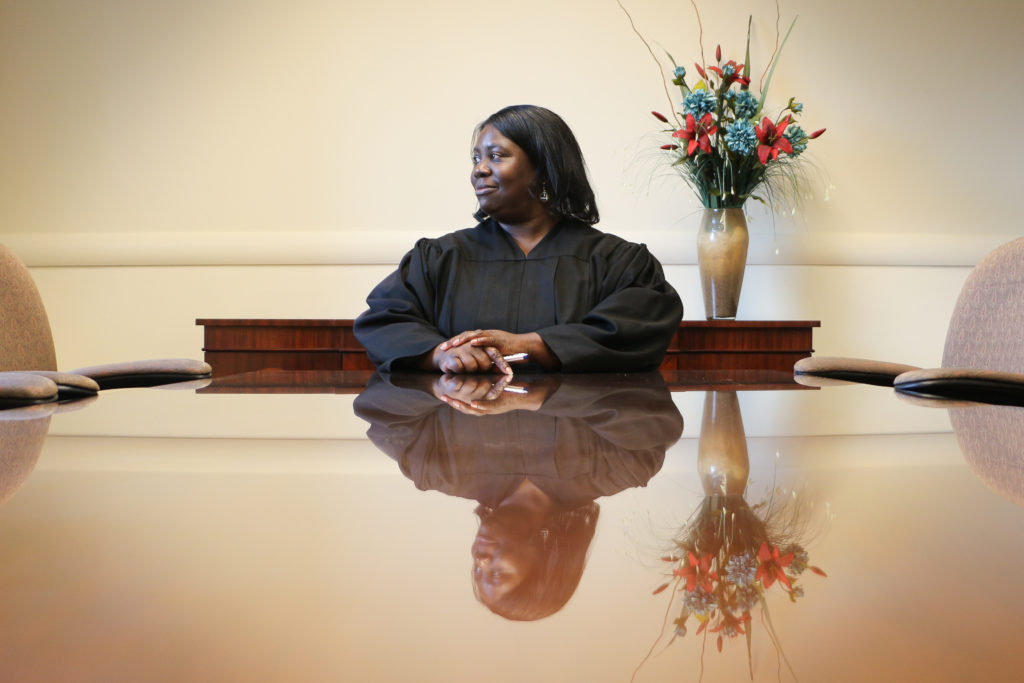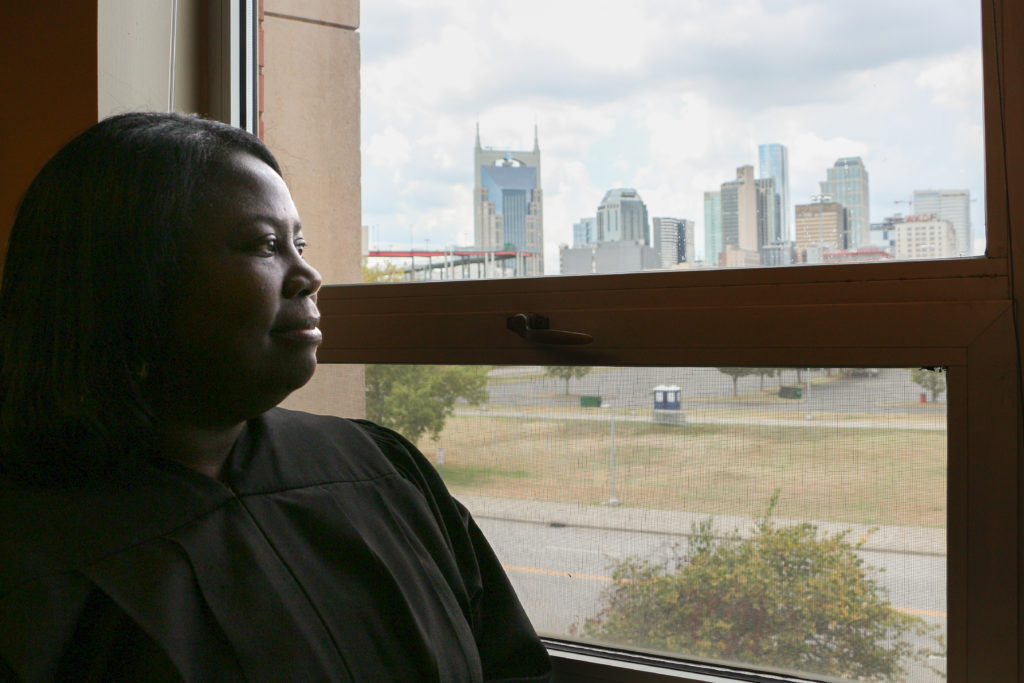
For years in Tennessee, teens have traveled to Nashville to get a judge’s approval for an abortion, instead of asking their parents. But that’s no longer an option, and that leaves young people with few places to turn.
Davidson County Juvenile Court judge Sheila Calloway remembers the faces of the teens who came into her chambers.
“They’re scared,” Calloway says, “anxious or nervous.”
And they were young — “as young as 14.”
Some were in the foster care system. Others were afraid their parents would kick them out of the house.
But the cases that stick with her most are the girls who never showed up.
“There was one young lady who was trying to get here and missed the bus,” Calloway says. “So I imagine she probably was unable to get an abortion.”
She missed the bus, and likely ended up having a baby she didn’t want because of it.
Calloway usually saw about 10 of these cases each year.
They were called judicial bypasses — a rarely talked about part of Tennessee’s law that allowed young people to get permission from a judge instead of their parents, and use that permission to get an abortion if they choose to.
“It gives them an opportunity to kind of get through it without adding that extra stress of the parent piece that they’re afraid to do,” Calloway says.
She says, about half of the time, the teens don’t want to tell their families because they were raped or assaulted — sometimes, by a family member.
Calloway, and the lawyers who helped represent these young people, have never spoken publicly about this.
Until now.
‘She might have had that baby’
Last week, Rachel Welty stood in front of the state capitol with a group of Democratic lawmakers. She has fiery red hair and wore a shirt that says ‘Our Bodies, Our Futures, Our Abortions.’
“The days of a teen hopping a Greyhound bus from Memphis so I can assist her with receiving a judicial bypass approval to seek out abortion services is effectively over,” Welty says.
Welty was one of a small, secretive group of lawyers who would represent these young clients.
They kept what they were doing under wraps. And there’s a reason for that. She remembers one girl who told her school counselor she was pregnant, and the counselor told the girls’ parents.
“And so her ability to go get that bypass really fell apart,” Welty says, pausing. “She might have had that baby. I don’t know.”
Another lawyer said she was worried that conservative legislators might catch wind of what was happening in the courthouse down the road, and outlaw it.
 Paige Pfleger WPLN News
Paige Pfleger WPLN NewsDavidson County Juvenile Court judge Sheila Calloway looks out the window of her offices at the Nashville skyline. She can see the state capitol from the courthouse and says she has a lot of concern about how the state’s abortion ban will impact teenagers who get pregnant.
So they couldn’t broadcast what they were doing, but they needed to get the word out.
“We had a network of abortion providers across the state that knew that we had an ability to help teenagers get those without a big struggle,” Welty says. “And some of the other maybe more conservative, much smaller communities and counties in Tennessee — a teenager would have not had the same ability to go do that.”
‘Zero options’
But as of this summer, this secretive system ushering young people to Nashville ground to a halt.
The five teens that got judicial bypasses this year will be the last for the foreseeable future.
Welty cried when she heard about the Supreme Court’s decision. She immediately thought of the teens she wouldn’t be able to help.
“They’re going to have zero options,” Welty says.
It’s a harsh reality, Welty says, in a state that already has one of the highest rates of teen pregnancies in the country and where abstinence-only sex education is taught schools.
Now, teens looking for abortions will have to find a way to get to a state like Illinois, which no longer requires parental consent.
And if they can’t, judge Sheila Calloway says Tennessee should expect to support more children having children of their own.

